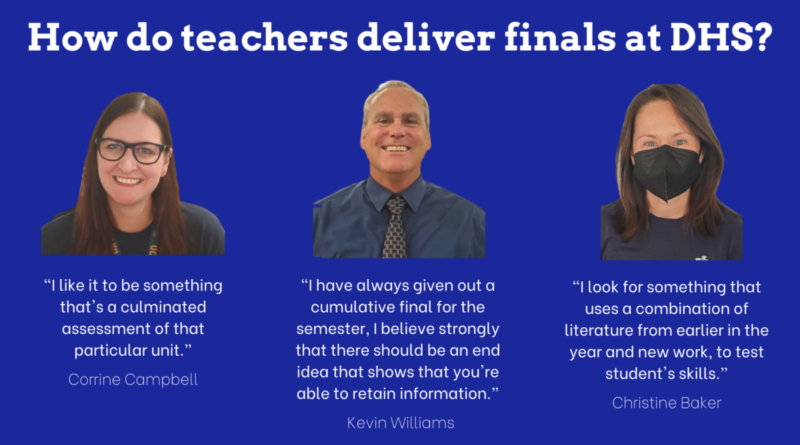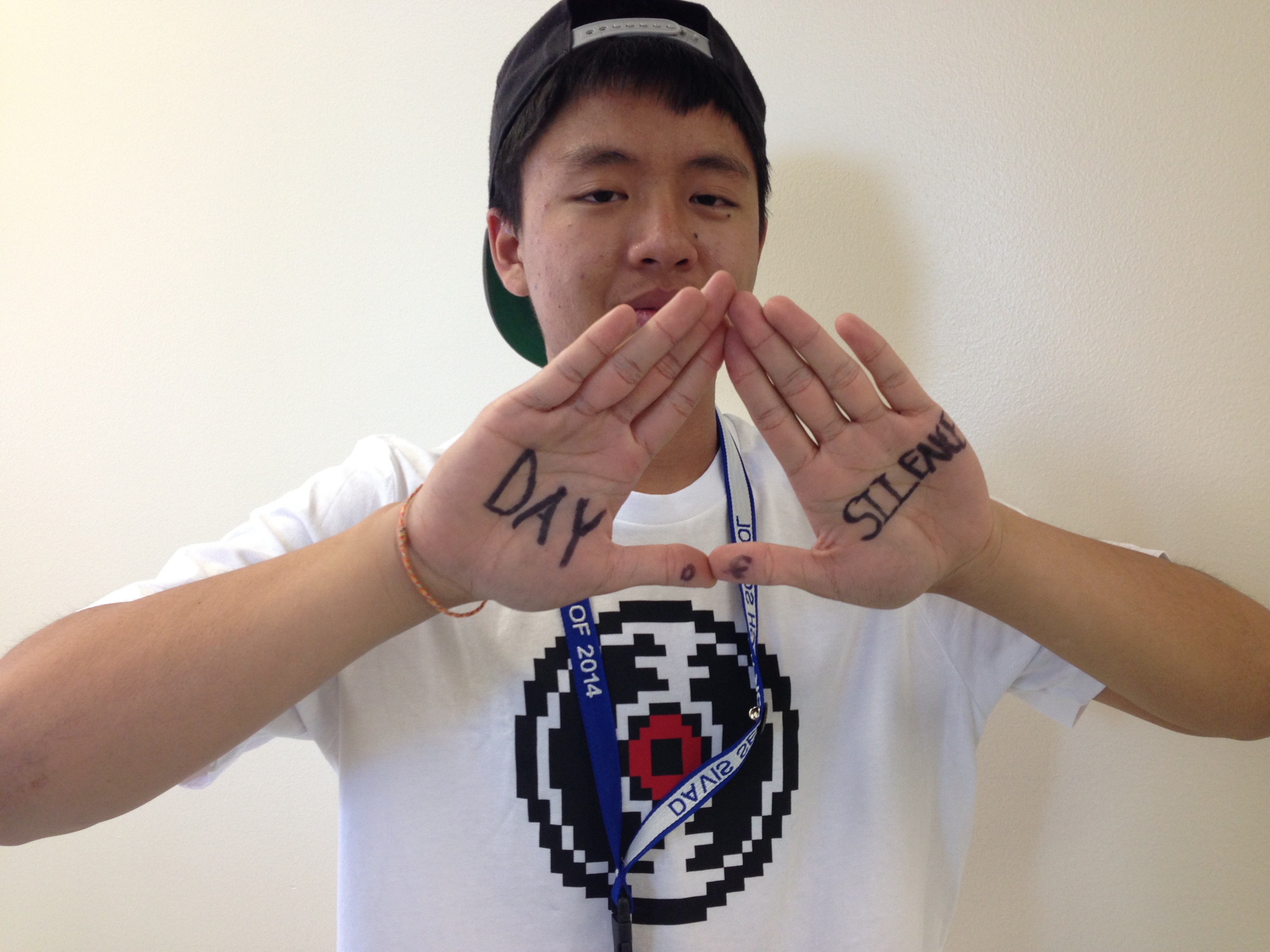Preparing for finals
GRAPHIC: How do teachers deliver finals? (HUB Graphic/Camile Reyes Rojas)
By Noah Meyor and Camile Reyes Rojas
BlueDevilHUB.com Staff––
Preparing for Finals
By Noah Meyer
As the year winds down, the slow grind of school only ramps up. After hours and days of studying, learning, and testing, all of that information is collected together for one purpose. It all culminates in one big final test.
That’s the way the entirety of the US does it, and it’s how Davis High does it too. With stress building, it’s understood that students will have a tough time preparing for finals.
However, there’s a lot of different ways that students can prepare, from the simple to the niche.
Senior Claire Miller has a simple yet effective way of getting ready for final exams. “I take intense notes, and I like to go back and highlight them, for a good refresher,” Miller said.
Other students have more unconventional ways of studying. One of those ways is the cramming strategy, which involves studying everything the night before the final.
Sophomore Braden Campbell is one of the many students who cram the night before. “I study the day before, and do the practice tests my teachers give out,” Campbell said.
One reason students feel the need to cram is because they feel like many times, information can grow stale as time goes on. It’s believed that cramming can keep information present in students’ minds.
“The best way to prepare is to cram the night before so everything’s fresh,” Campbell said.
It’s not just students who think about finals. Teachers also have to prepare for finals, and for first time teachers, that can be a challenging process. Chemistry and physics teacher Sydney Lundy felt that there was a difference between first year teachers and experienced ones.
“Making a final [for the first time] can be a pretty monumental task,” Lundy said.
Lundy also ha advice for students. One way to be fully prepared for finals is simple, yet important. While preparing material is important, preparing yourself can be even better.
“[Students should] definitely bring snacks. [Students] should [also] bring plenty of water,” Lundy said.
Whether it be from sleeping, cramming, or note taking, every student has their own unique way of studying.
Keeping your mental state together is important, and the key to staying calm under pressure is sleep. The Sleep Foundation, a non-profit organization dedicated to providing expert information on health-related issues concerning sleep, found that getting enough sleep can be influential to having success on your final. “Some studies have found that getting a full night’s sleep before taking an exam is correlated with better grades and higher overall GPA,” according to the Sleep Foundation.
Lundy is a big proponent of sleep, as it remains one of the most effective ways to prepare students for their final exams. “[Students absolutely] need to get enough rest the night before final days,” Lundy said.
Are Finals the Best Way to Assess Students?
By Noah Meyer
Final exams have been around since the 1800s, and they don’t show any signs of stopping. However, there’s been a slow shift in favor of phasing out finals. One way classes compensate for a lack of finals is through big, end-of-the-year projects.
Associate Professor Tony Albano in the School of Education at UC Davis still gives finals, but is aware of the shift taking place. “Sometimes [students] will have a final project. The goal [of any final] is to assess what you’ve learned,” Albano said.
While some are in favor of moving away from finals, Albano isn’t. Albano has specific concerns about where grades would come from if finals were to be eliminated.
“If you phase out the final, where is your grade coming from? It has to come from assignments. If you have a big assignment, and you don’t do well, there’s no final as a future opportunity to improve,” Albano said.
Albano’s main issue rests with weighting. He says that if finals are weighted fairly, then they should stick around.
“[The] best thing to do is to have balance,” Albano said. “If you give a final, you shouldn’t weigh it as much [compared to other assignments]. [It should be] maybe 20% of your grade.”
A different perspective on finals comes from Dave Powell, the Associate Professor of Public Policy at Gettysburg College in Pennsylvania. Powell views finals as a flawed way of assessing students at the end of the year.
One major problem Powell has with final exams is the fact that tests are often relied on too heavily as an accountability piece, not a way to reflect on what a student has learned.
“[Finals] hyperfocus on achievement and academic learning [while] obscuring all [of the] other things that happen in schools that are positive,” Powell said.
For Powell, the solution lies in testing students not just on what they memorized, but what they actually learned.
“The great way to [assess] students is to not just focus on tests, but collect evidence throughout a semester and really encourage students to reflect on that,” Powell said.
Powell finds that regurgitation of information is counterproductive, and doesn’t show what a student has actually learned.
“[Assessing a student] is not just about memorizing a body of information. It’s about what you can piece together,” Powell said.




